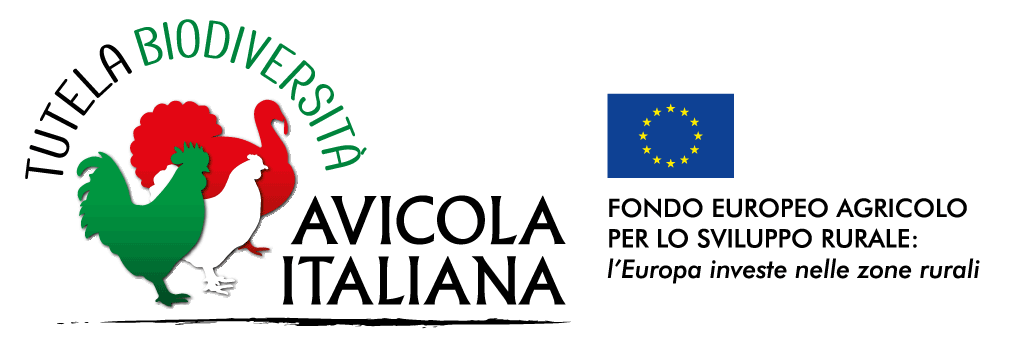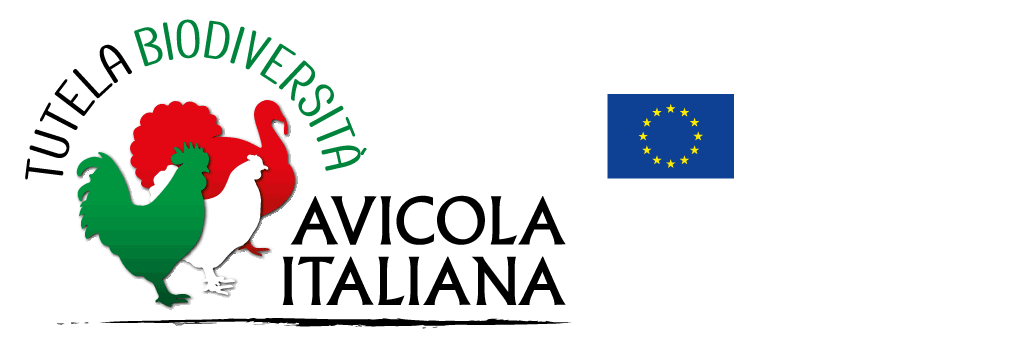Robusta Lionata
Geographic origin: Veneto (Rovigo)
Geographic distribution: Veneto
Estimated total population size: 452 (Castillo et al., 2021)
Extinction risk status (FAO, 1998): Threatened conserved
Historical origin of the breed
The Robusta Lionata breed was created in 1965 at the Poultry Experimental Station of Rovigo. It was created using the Tawny Orpington and White America breeds during the selection process. The breed is characterised by good egg and meat production, and it is reared for niche products. Hens show high aptitude for broodiness and parental care, also towards eggs and chicks of other species. It is included as a local breed in the National Plan on Biodiversity in Agriculture and in the Atlas of Traditional Agri-food Products (Atlante dei Prodotti Agroalimentari Tradizionali) of the Veneto region.
Pictures from the archives of Prof. Gabriele Baldan and Prof. Massimo De Marchi.
Qualitative morphological traits
Feather morphology: Normal
Feather distribution: Normal
Plumage structure: Abundant, slightly soft
Plumage colours: Tawny
Colour features: Bi-colour, without sexual dimorphism
Colour pattern: In the male, yellow-tawny of a warm tone, hackle feathers with black and irregular spots or pencilling, flight feathers with brown veining. In the female, slight patterning on the back is admitted.
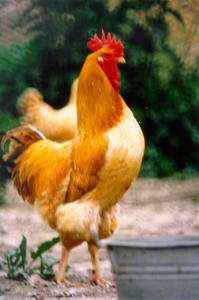
Robusta Lionata male (UniPD)
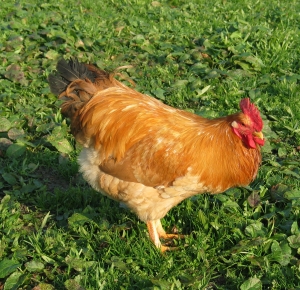
Robusta Lionata female (UniPD)
Chick plumage colour: Tawny down with little brown spots on the head
Comb type: Simple comb, upright
Comb spikes: Five to six spikes
Ear-lobe colour: Red
Beak colour: Orange
Iris colour: Orange to red
Skin colour: Yellow
Shank colour: Yellow
Shank feathering: Free from feathers
Quantitative morphological traits

Genetic traits
Characterisation of the breed with Single Nucleotide Polymorphisms (SNPs)
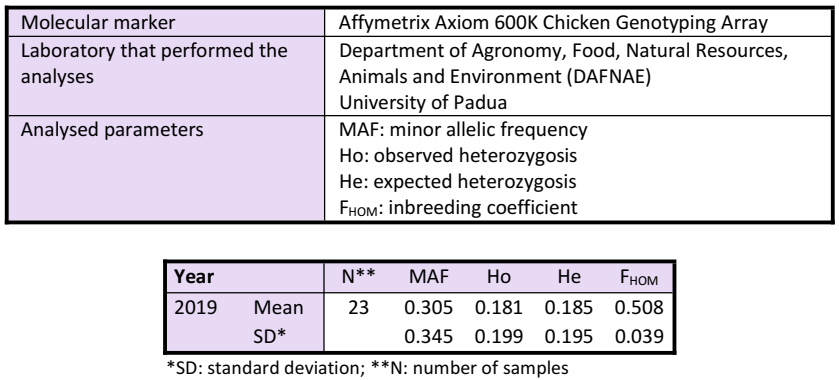
Characterisation of nucleus populations with microsatellites
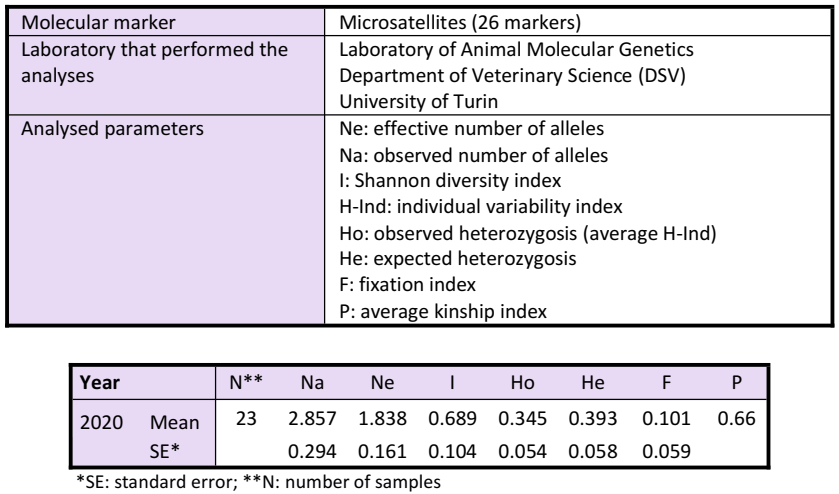
Reproductive and productive quantitative traits
Oviposition, brooding and incubation data
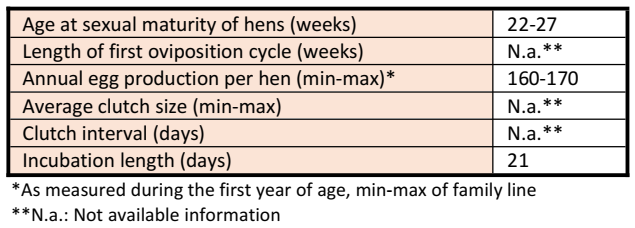
Egg-quality traits

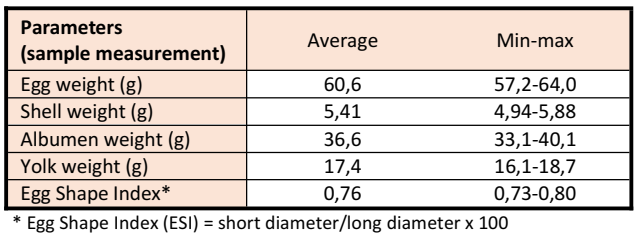
Reproductive traits
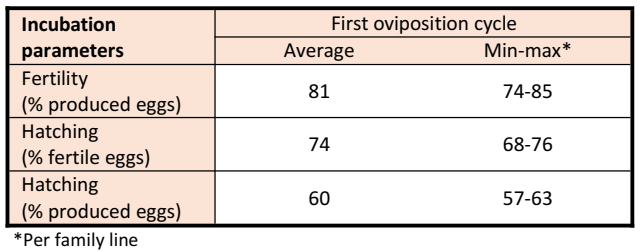
Slaughter data (age: 24 weeks)

Rearing traits
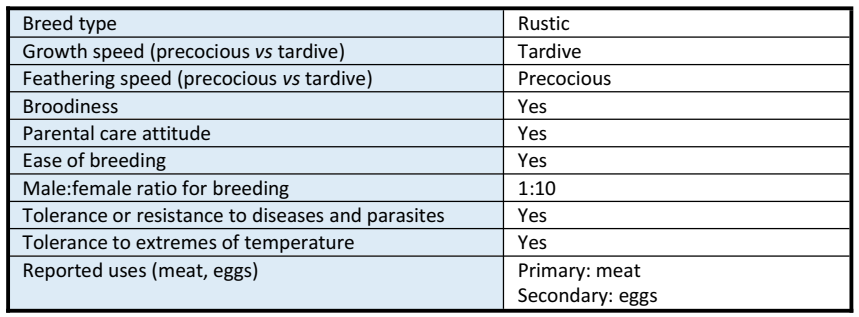
The presented data were registered in the nucleus population conserved at the “Sasse Rami” Experimental Farm, in Ceregnano (Rovigo).
Technical data sheet
(The layout of the data sheet is ready for the booklet format. Print on both sides of paper, selecting “flip on short edge”.)
Germplasm collection
The breed is conserved in our Cryobank with 43 semen doses from 7 donors.
Genetic report
Download the latest genetic report for the Robusta Lionata breed:
Latest update: December 9th, 2024
